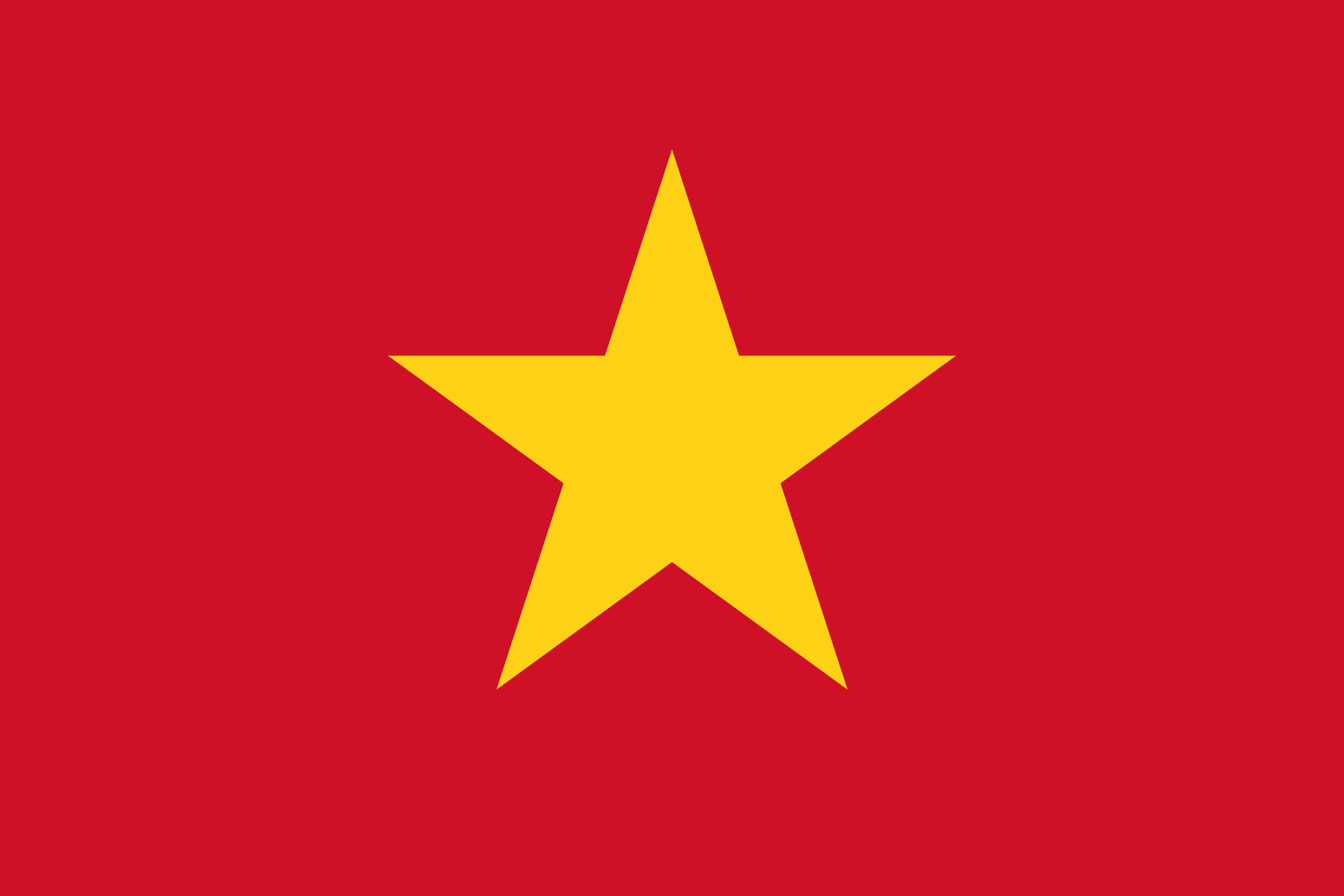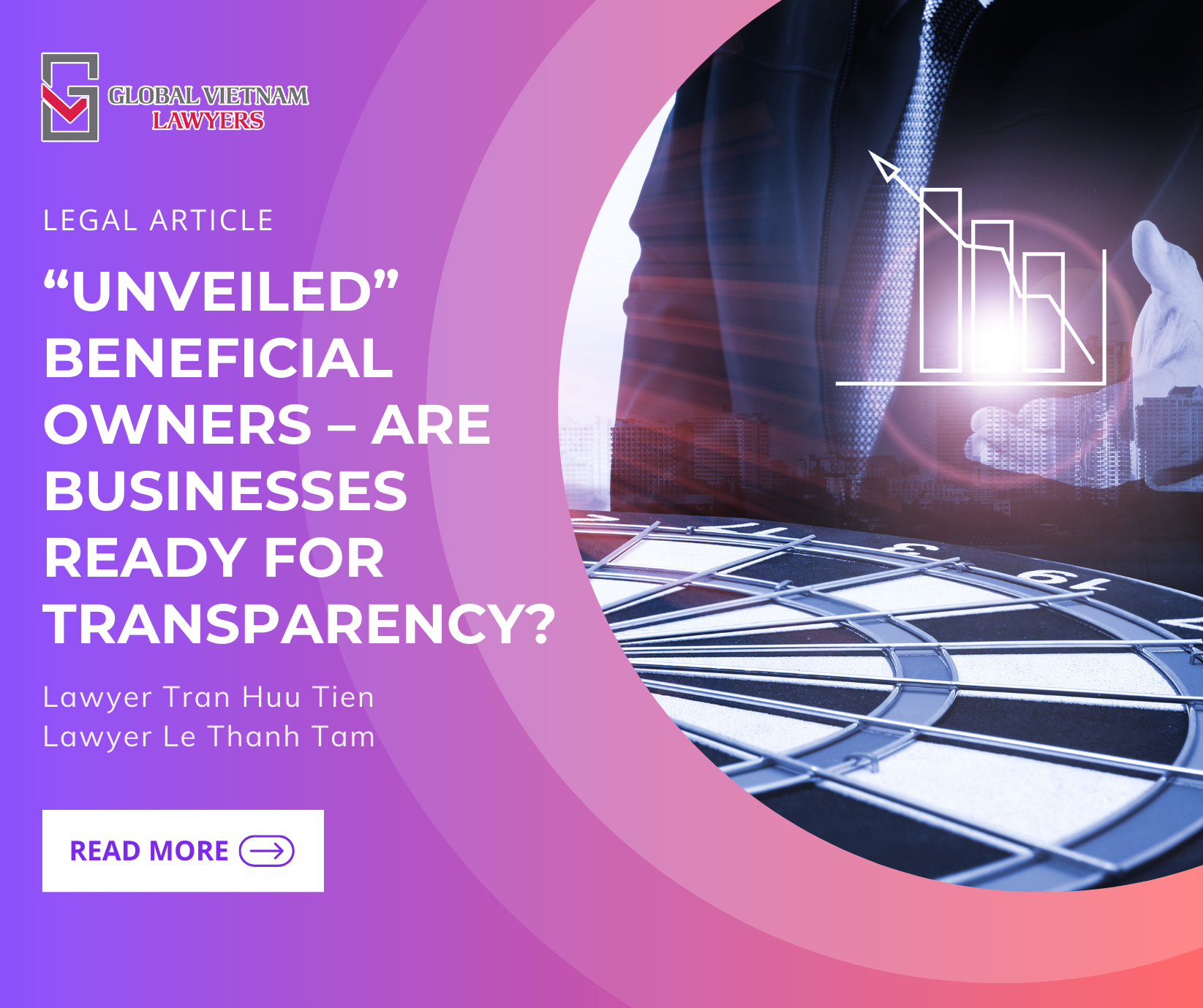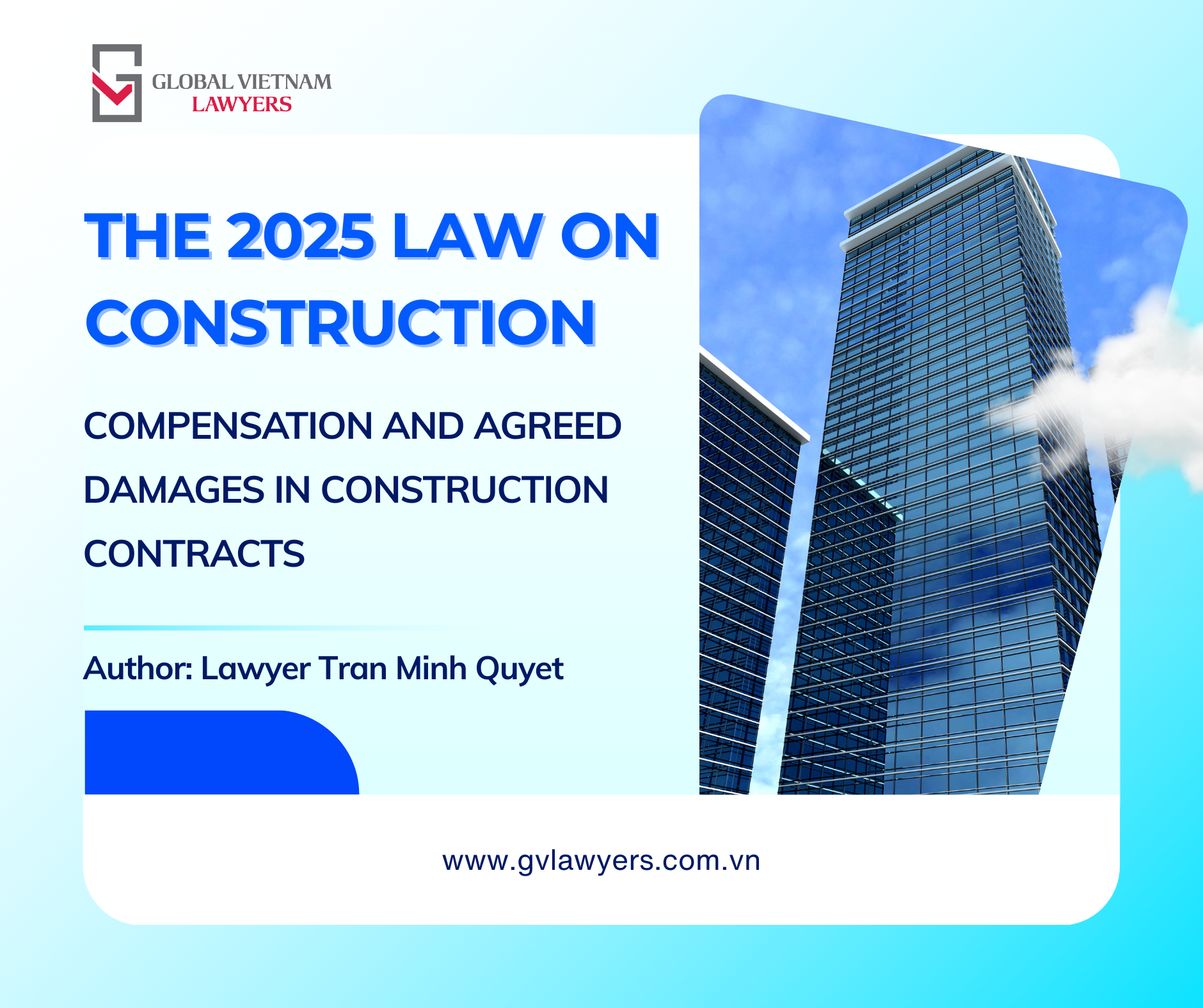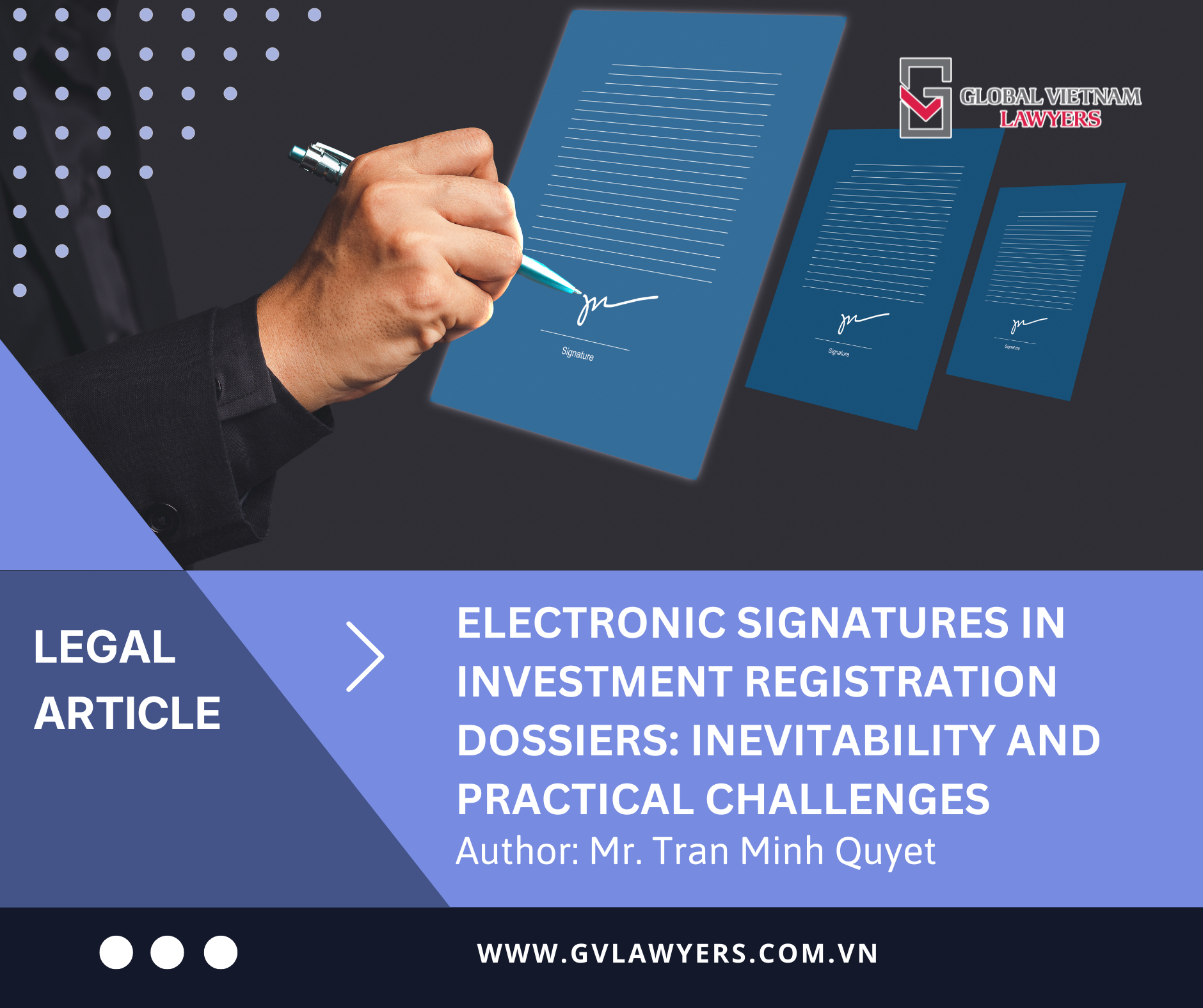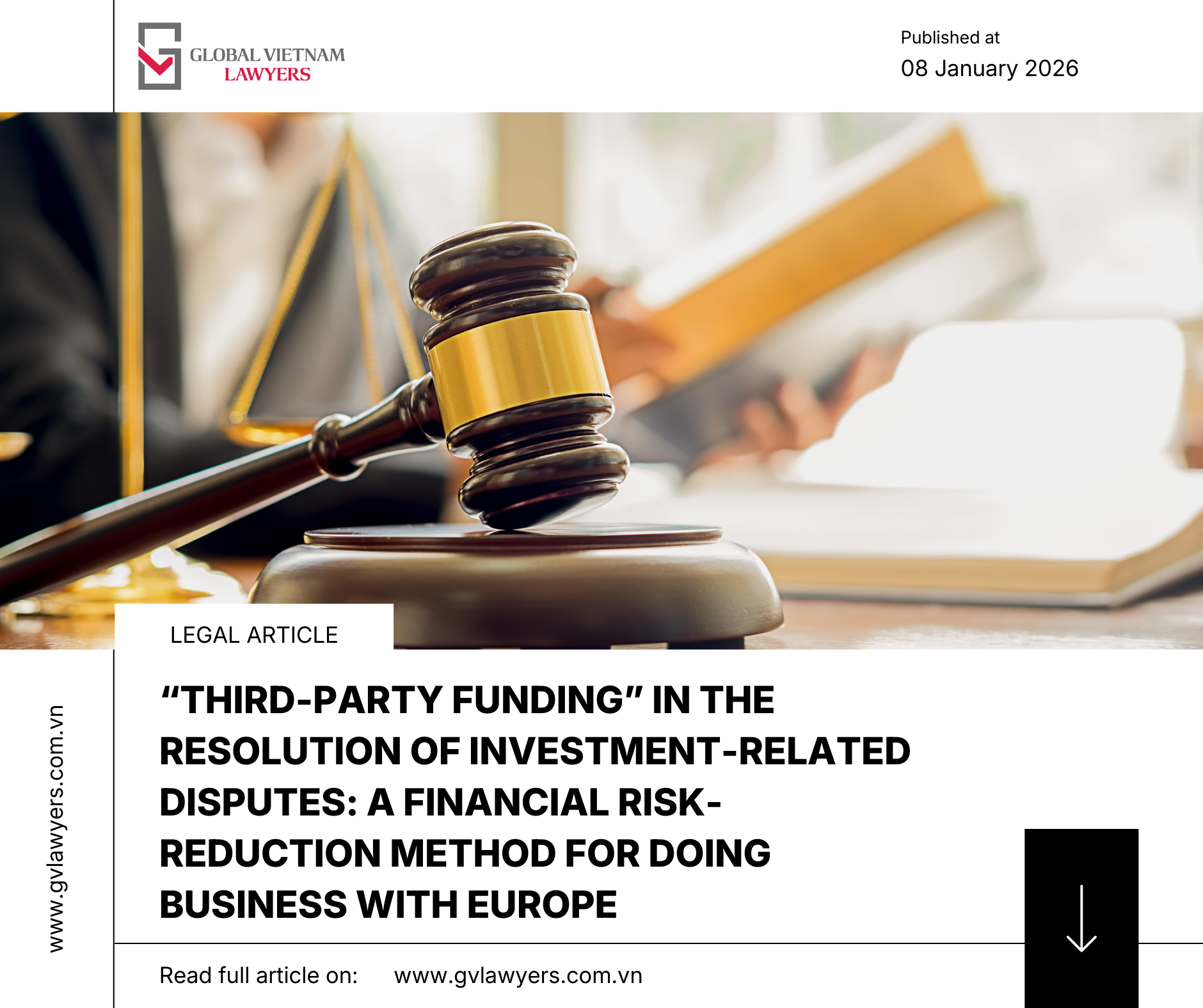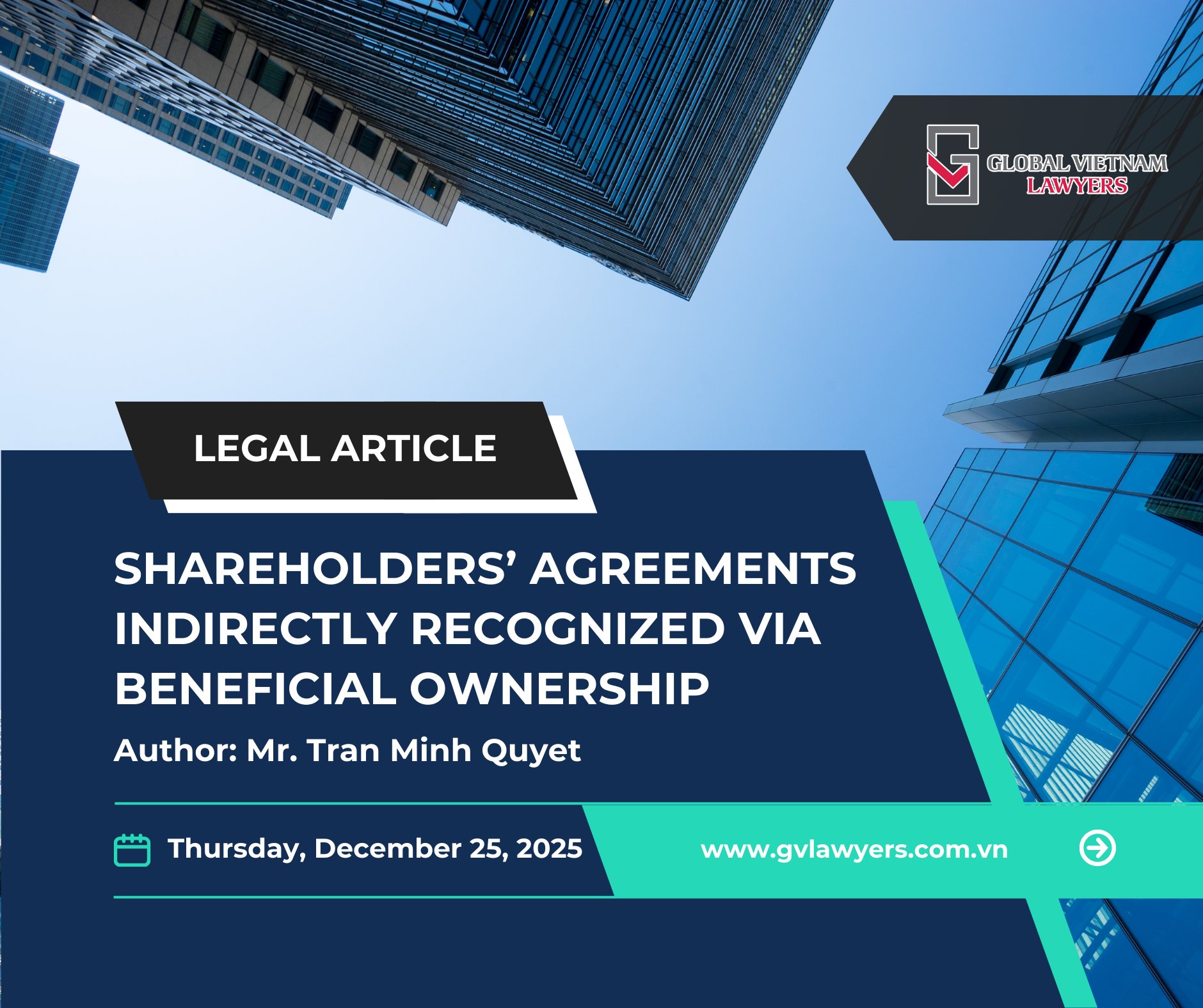Global Vietnam Lawyers would like to introduce our valued readers to an article by Lawyer Tran Huu Tien and Lawyer Le Thanh Tam titled “Unveiled” Beneficial Owners – Are Businesses Ready For Transparency? published in The Saigon Times, No.15-2025 (1.791) on April 10, 2025.
***
Beneficial Owners – A Strange Yet Familiar Concept
The concept of “beneficial owner” appeared in Anglo-American law, was initially related to trust management, to distinguish it from a legal owner. In short, the legal owner is only the person whose name is put in the asset instrument, while the beneficial owner is the real owner and the person who actually controls that asset. The asset here could be a normal asset, a company, a financial fund, etc. The agreements between the legal owner and the beneficial owner are private agreements only known about by the two parties.
Beneficial owners may sound strange, but in fact they still exist in Vietnam, through the form of “disguised” or “named-for-others” investment. This structure puts those assets under a vague legal cover, lacking transparency, at least from the public’s perspective.
This is also one of the reasons why the Financial Action Task Force (FATF) issued recommendations on Anti-Money Laundering (AML) and Combating the Financing of Terrorism (CFT), requiring countries to identify “beneficial owners” to prevent the use of legal entities to conceal illegal activities.
Beneficial owners were introduced in the Anti-Money Laundering Law 2022, but what is fresh here is that this concept will be legalized into the Enterprise Law.
According to the draft Enterprise Law (amended), beneficial owners of legal entities are individuals who: (i) actually directly or indirectly hold 25% or more of the charter capital of the enterprise; or (ii) directly or indirectly enjoy more than 25% of the dividends or profits of the enterprise; or (iii) ultimately have the right to control the operation of the enterprise.
 Are businesses ready for transparency through disclosure of beneficial ownership?
Are businesses ready for transparency through disclosure of beneficial ownership?
The inclusion of beneficial ownership in the Enterprise Law is essential to meet international standards, helping make ownership structures transparent, preventing money laundering, tax evasion and boosting confidence from international investors. This legalization will have significant impacts on businesses in Vietnam.
The draft Enterprise Law (amended) also involves many compliance requirements for businesses, mainly the obligation to disclose information related to beneficial owners to competent authorities and third parties.
The disclosure of beneficial ownership information, which businesses have never had to do before, aside from adding another procedure to comply with, also exposes internal arrangements, ownership structures, and commercial agreements – secrets that businesses do not want to be widely disseminated. This will impact internal governance as well as external relations, especially in sensitive industries such as finance, real estate or technology.
For enterprises with good and transparent internal governance systems, the disclosure of beneficial ownership information is designed for enterprises to better manage internal relations, avoid group interests or abuse of control. This also reduces the risk of enterprises being implicated in legal cases related to money laundering or violations of financial laws, which may cause great damage to reputation and economy.
However, for enterprises with complex capital structures, especially those with “disguised” owners, transparency will be a troubling problem. According to Decision 194/QD-TTg dated February 23, 2024 of the Prime Minister on promulgating the national action plan to implement the commitments of the Government of Vietnam on preventing and combating money laundering, terrorist financing and financing of proliferation of weapons of mass destruction, the completion of the legal framework on beneficial ownership and its legalization into the Enterprise Law must be done before May 2025. The question is whether or not businesses are ready for transparency?


